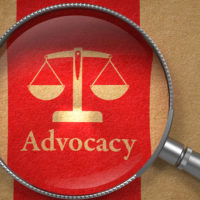Is the Department Of Justice Taking Another Look At The Use Of Forensic Science In Criminal Cases?

In spite of actions taken in April by Department of Justice Attorney General Jeff Sessions announcing that the Department was disbanding the National Commission on Forensic Science and thus suspending its review of closed cases for evidence of inaccurate or unsupported statements by various forensics analysts, on August 7th, the Department gave some indication that it may be changing its course of action by announcing the creation of a Forensic Science Working Group within the Department.
Unfortunately, the new group will exist within the Department of Justice, which will likely make it more politically-influenced than the National Commission was. It will also be headed by longtime prosecutor Ted Hunt, which arguably doesn’t inspire a lot of confidence in terms of the future use of forensic science to overturn wrongful convictions.
A Disturbing Historical Pattern
Scientific critiques of forensics came from panels and commissions formed after serious crime lab scandals, DNA testing, and exonerations revealed that some prosecutors were deceiving juries with the antithesis of “scientific evidence” for decades in an effort to obtain convictions at any cost.
Contrary to statements made by current Deputy AG Rosenstein’s statements during the announcement on August 7th, critics of how some forensic science has been used to obtain convictions in court haven’t completely opposed the use of, say, methods such as fingerprint analysis/evidence. Rather, the error lies in the levels of certainty with which this evidence has, at times, been presented to juries in the courtroom. Jurors cannot be led to believe that all fingerprints are unique if we don’t actually know just how unique a fingerprint is in a given population.
Concerns also extend to expert testimony where competency tests arranged by outside entities have not been involved. Unfortunately, there are still no standards for experts making statements of certainty and conveying their assessments to juries. Arguably, we can’t provide juries with absolute matches, but rather probabilities. The fact that two scientific experts can testify in direct opposition to each other in a given case is a fairly good indication that the field may not be all that scientific after all, and we cannot simply rely on cross-examination to weed out bad expert testimony. Unfortunately, when there are contradictions with experts, it is human nature for the jury to be won over by the one that simply sounds more certain.
In addition, DNA testing has revealed that relying on the current system has sent many, many innocent people to prison. One need only look at the scandal involving the FBI’s use of flawed hair fiber and ballistic evidence for decades to support this fact.
Skilled Forensic Science Criminal Defense Attorneys
If you or a loved one has been the victim of a wrongful conviction, contact the Baez Law Firm today and find out how our forensic science attorneys can assist you. We’ve worked on countless wrongful conviction cases in representing clients throughout Florida and Massachusets, and we insist on having our own forensic analysis of the evidence and crime scene as part of our representation. This knowledge is only one of the many skills we bring to defending our clients.
Resources:
justice.gov/opa/pr/attorney-general-jeff-sessions-announces-new-initiatives-advance-forensic-science-and-help
washingtonpost.com/news/the-watch/wp/2017/08/07/deputy-ag-announces-new-forensic-science-working-group-but-still-doesnt-grasp-the-extent-of-problem/?utm_term=.58a2c5c3cb72




